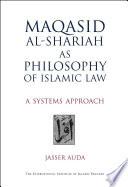
Women in Classical Islamic Law
A Survey of the Sources
Drawing on legal and ad th texts from the formative and classical periods of Islamic legal history, this book offers an overview of the development of the questions prominent jurists asked and answered about women s issues. All assumed a woman would marry and thus the book concentrates on women s family life. The introduction establishes the historical framework within which the jurists worked. A chapter on Qur n verses devoted to women s lives is followed by chapters on marriage and divorce which compare the views of jurists during the formative period. The fourth chapter describes the evolution from the formative to the classical periods. The fifth uses material from both periods to describe the array of legal opinion about other aspects of women s lives in and outside their homes. Throughout, jurists opinions are juxtaposed with relevant quotations from contemporaneous ad th collections.
- ISBN 13 : 9004174354
- ISBN 10 : 9789004174351
- Judul : Women in Classical Islamic Law
- Sub Judul : A Survey of the Sources
- Pengarang : Susan Ann Spectorsky,
- Kategori : Social Science
- Penerbit : BRILL
- Bahasa : en
- Tahun : 2010
- Halaman : 223
- Google Book : http://books.google.com/books?id=wR8Q85Vc1xMC&dq=intitle:ISLAMIC+LAW&hl=&source=gbs_api
-
Ketersediaan :
PREFACE Given the many ways the author of a book on the history of women in
classical Islamic law can approach such a topic, it is important to establish at the
outset what this study does and does not do. In particular, it is not a social history,
...









